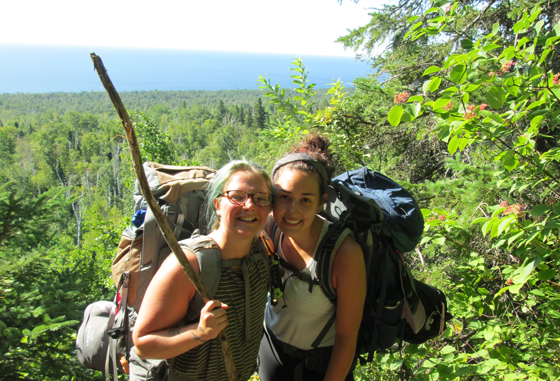
UNI Earth and Environmental Sciences - Faith Luce, Earth Day 2020
From the desk of Faith Luce –
Aldo Leopold was a great conservationist and environmentalist. Leopold is known as the father of wildlife management. Wildlife management is the act of finding the balance between wildlife and humans so that we can coexist without harm to one another. Leopold’s foundation of wildlife management has preserved species once on the brink of endangerment through practices like regulated hunting and the preservation of land for threatened species. Through these practices, many species have been saved including the Sandhill Crane, Bald Eagle and the Wild Turkey. Leopold explains his idea of a land ethic as humans, soil, water, plants and animals all depending on each other and the health or the lack thereof is a product of another part of that community. This ideal calls for an ethical relationship between humans and nature. Leopold spent his life living this ideal. From a young age growing up in Burlington, Iowa his love for the natural world grew through observing and sketching his surroundings. Following his passion, he pursued a career in the U.S Forest Service. During his time in the Forest Service, he was instrumental in developing the nation's first wilderness area, Gila National Forest in New Mexico. After his time in the Forest Service Leopold accepted a position at the University of Wisconsin. During his time in Wisconsin, he bought a dilapidated farm outside of Baraboo. Leopold and his family spent their time planting thousands of pine trees and restoring the prairies. Aldo Leopold has inspired many to become conservationists, ecologists and stewards of the land throughout his lifetime, his legacy will remain constant and relevant throughout time. Through his published writings such as the Sand County Almanac and Land ethic, his passion is shared to many following generations.
Aldo Leopold... “We abuse land because we see it as a commodity belonging to us. When we see land as a community to which we belong, we may begin to use it with love and respect.”
There was such a time when we as humans could not see the effect that our growth had on wildlife and wilderness areas, we do not belong to that time anymore. We have data and evidence that supports our actions as being detrimental to the environment. It is our duty as stewards of this earth to not only protect it, but to heal it when it's sick. There are many things that we can do to be stewards. We can be advocates of stricter environmental regulations, recycle items to lessen your waste, plant butterfly gardens or pick up trash around natural areas in your community.
Faith Luce in Action
Click here to go back to UNI Earth and Environmental Sciences - Earth Day 2020
Learn more
